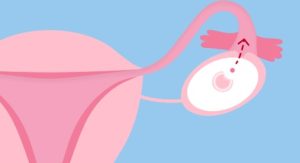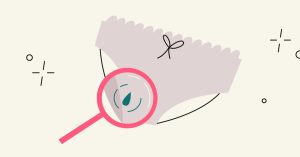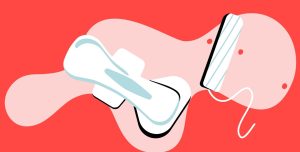Hey ladies! You’ve probably noticed that your body goes through changes during your menstrual cycle. But did you know that your hormones are behind all those ups and downs you experience each month?
Your reproductive hormones, like estrogen and progesterone, fluctuate during each stage of your cycle and directly impact how you feel physically and emotionally. As your body gears up for the possibility of pregnancy each month, your hormones transform from cheerleaders to villains and back again.
Here are the top three ways your hormones are influencing your body during each phase of your cycle.

The Follicular Phase: Estrogen Surges Give You Energy and Motivation
During the follicular phase, your estrogen levels start to rise, giving you an energy boost and increased motivation.
Estrogen enhances the production of dopamine and serotonin, the “feel good” neurotransmitters in your brain that elevate your mood and motivation. You’ll feel more optimistic and driven to socialize, exercise, and pursue your goals.
Estrogen also increases blood flow throughout your body, delivering oxygen to your cells. This enhances your energy levels, strength, and endurance. Take advantage by ramping up your workouts or starting a new exercise routine.
Your estrogen surge stimulates the growth of new neural connections in your brain, enhancing your cognition, creativity, and memory. This is an ideal time to learn a new skill, start a hobby, or tackle complex problems.
However, these estrogen-induced effects are temporary. Make the most of this motivated and energized state before your estrogen and dopamine levels decrease again during the luteal phase. Take on challenging tasks, connect with friends, and engage in self-care. Your body and mind will thank you for it!
By understanding how your hormones impact you during each stage of your cycle, you can work with your body’s natural rhythms instead of against them. Harness the power of estrogen and make the follicular phase as productive as possible. Your goals and dreams will be that much closer to reality.
The Ovulatory Phase: A Testosterone Boost Makes You More Outgoing
During the ovulatory phase, your body gets an injection of testosterone that boosts your confidence and desire for adventure.
Around day 14 of your cycle, your follicle-stimulating hormone and luteinizing hormone spike, triggering the release of an egg from your ovaries – this is ovulation. At the same time, your testosterone levels also rise. This temporary boost in testosterone, the hormone responsible for sex drive and assertiveness, means you may feel more social and willing to take risks.
You’ll likely feel an increased interest in socializing and a desire to meet new people. Make plans to see friends, accept party invitations, and engage in new hobbies or activities that spark your curiosity.
Your libido and arousal may increase, so sexual activity with a partner can be especially enjoyable during this time. You may feel a burst of motivation or creativity. If there’s a project you’ve been wanting to start or a skill you’ve been meaning to develop, now is the time to dive in. Your confidence and “can-do” attitude will drive you forward.
This outgoing phase only lasts around 3-4 days before shifting into the luteal phase. But while it’s here, embrace your inner extrovert and make the most of this hormone-induced zest for life. The ovulatory phase is a chance to tap into your adventurous and flirty side – so get socializing, get busy, and get inspired!
The Luteal Phase: Progesterone Ups Appetite and Desire for Comfort
During the luteal phase, your progesterone levels spike. This hormone is responsible for raising your body temperature and appetite.
Cravings Galore
Have you ever noticed your cravings for high-carb, high-fat comfort foods seem to intensify around this time of the month? Blame the progesterone. It stimulates parts of your brain involved in pleasure and reward, making foods like chocolate, chips, and ice cream hard to resist.
Rest and Relax
Progesterone also makes you feel more tired and in need of extra rest. Your body temperature increases, and you may feel warmer or experience hot flashes. Give in to your body’s cues and take it easy when you can. Light exercise like walking or gentle yoga can provide energy boosts and help relieve stress, but avoid pushing yourself too hard during this time.
Nesting Instinct
That desire to curl up on the couch for a Netflix binge? Also thanks to progesterone. It activates your body’s “nesting” instinct, making you want to relax in comfortable surroundings. The good news is, this instinct will fade once your period arrives and progesterone levels decrease.
Your hormones are working hard behind the scenes during each stage of your cycle. Understanding how they influence your body can help you better nurture yourself during your period and throughout the whole month. Give your body and mind what they need, and try not to be too hard on yourself for those cravings, extra pounds, or low motivation days. Your cycle is normal and natural, so do your best to embrace each stage.
So, there you have it. Your body goes through so many changes each month thanks to the ups and downs of your hormones. During your period, hormones like estrogen and progesterone plummet, causing cramps, cravings, and crankiness. Mid-cycle, estrogen surges to help prep your body for potential pregnancy if you ovulate. In the post-ovulation stage, progesterone rises to maintain a pregnancy if conception occurs or falls if it doesn’t, starting the whole cycle over again.
Your hormones may feel out of your control at times, but understanding how they impact you each month can help you better manage their effects. Try natural remedies for cramps, indulge your chocolate craving in moderation, and give yourself grace if you feel moody.
Most of all, appreciate all the amazing things your body does and how powerfully your hormones work to keep you healthy. You’ve got this – every stage, every month, every cycle.







